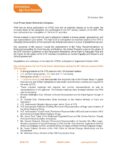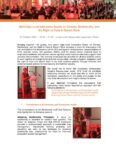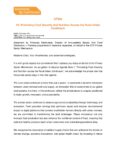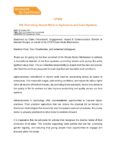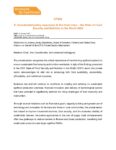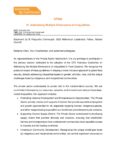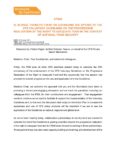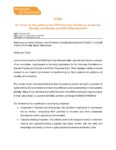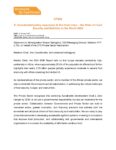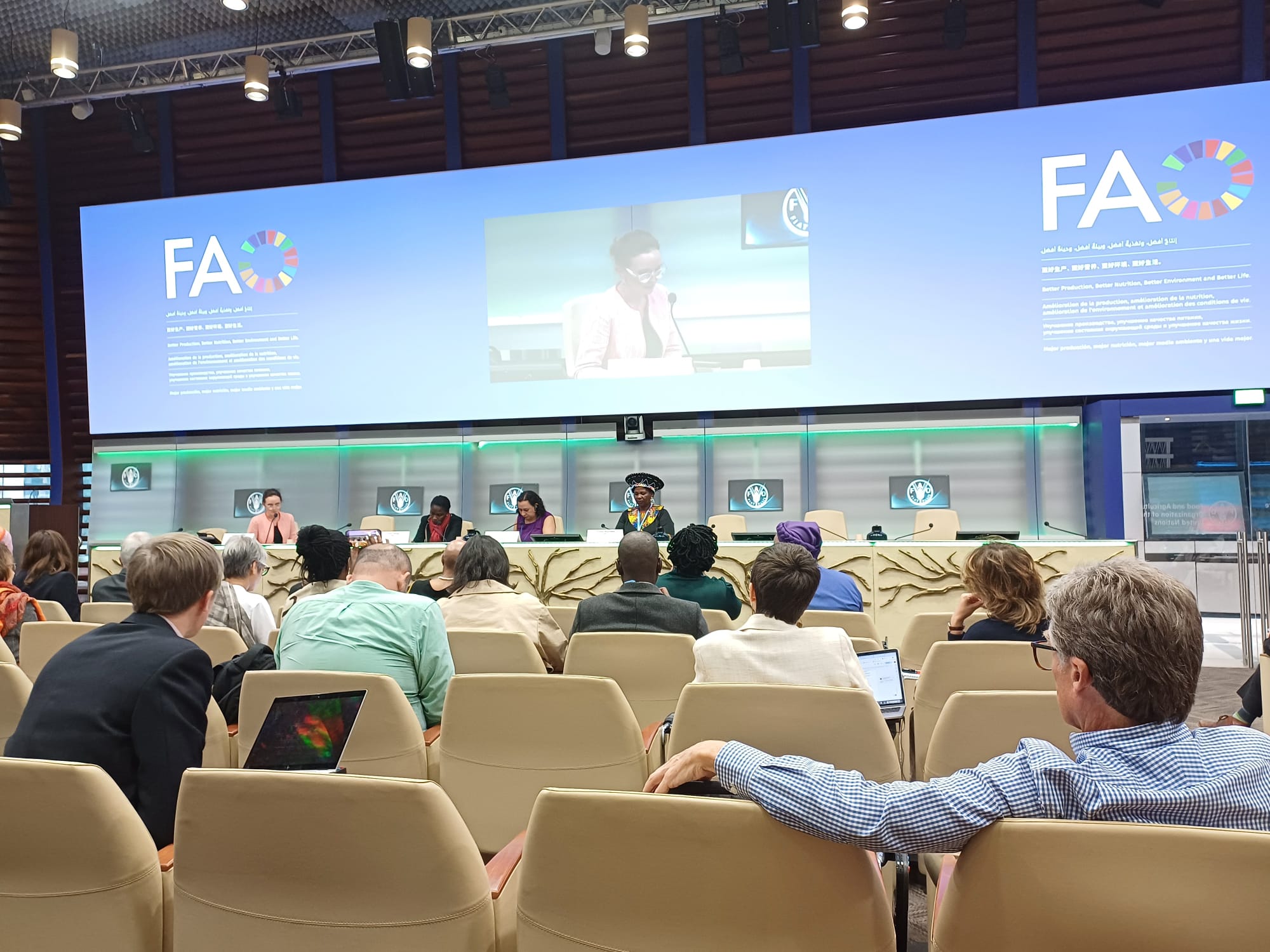
2024
CFS 2024 Private Sector Engagement
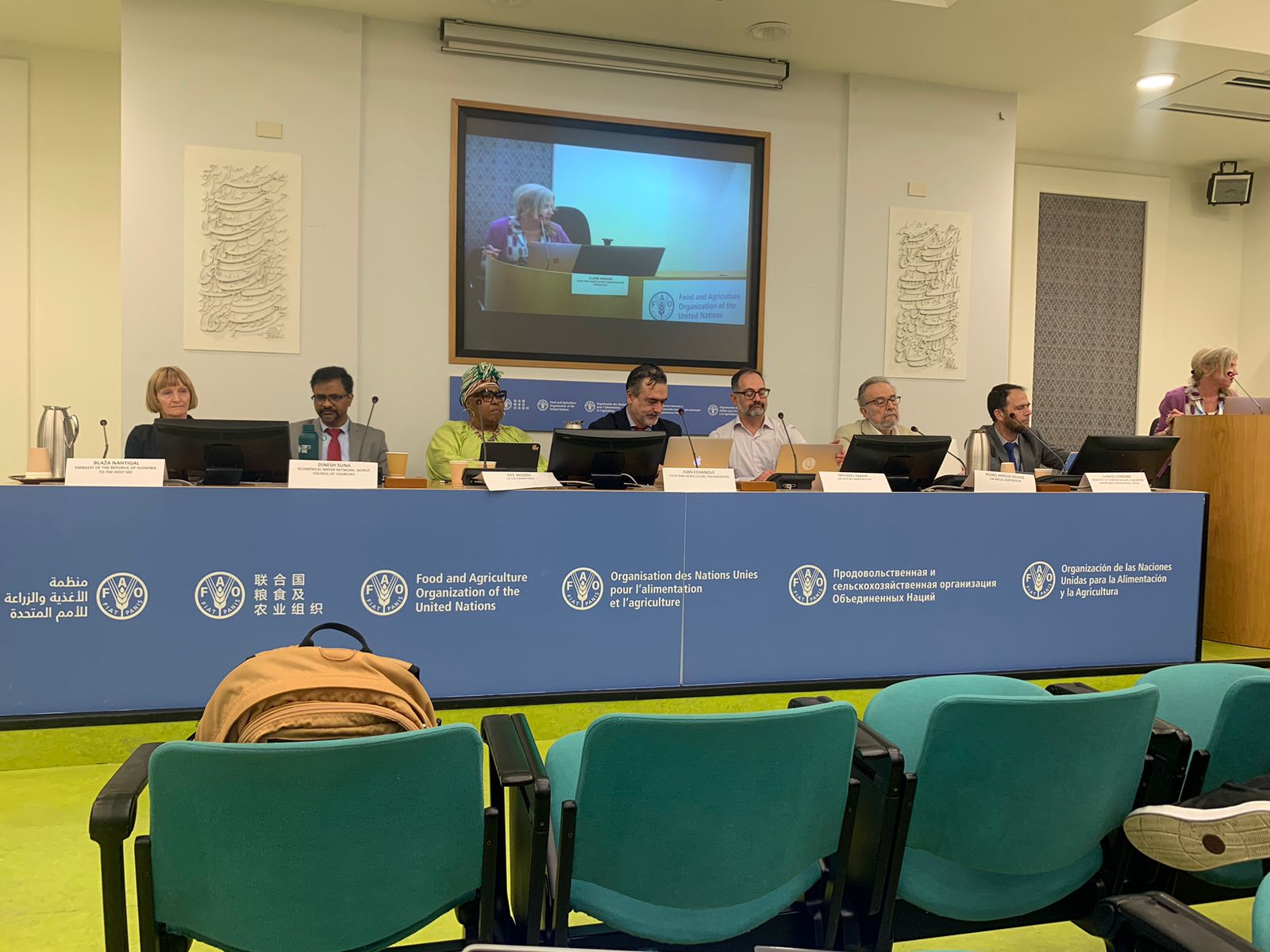
PSM had an active participation at CFS52 and with all activities leading up to the event. We sincerely thank all the delegates who participated in the 52nd plenary session of the CFS. PSM was represented by a delegation of 124 from 27 countries.
We are pleased to report that this year’s delegation included a diverse gender, geographical, and age representation (see below). The high level of participation by business leaders to the CFS is a tangible demonstration of the important role of the private sector in pursuit of global food security.
Key outcomes of the session include the endorsement of the Policy Recommendations on Reducing Inequalities for Food Security and Nutrition, the Global Thematic event on the uptake of the CFS Voluntary Guidelines on the Progressive Realization of the Right to Adequate Food and the Forum on the uptake of the CFS Voluntary Guidelines on Gender Equality and Women’s and Girls Empowerment.
PSM members organized 7 side events this year reaching over 488 attendees in person and virtually. These were the organized side events:
From linear to circular: The roles of value chain partners in catalyzing and supporting sustainable peri-urban circular bio economy systems.
Tuesday 22 October.
Organizers: Private Sector Mechanism, Solutions from the Land, Embassy of Kenya, Circular Bioeconomy Systems Institution, Global Dairy Platform, United States Mission to the RBAs, Syngenta, and Pinion.
In this side event, value chain partners offered examples of how circularity can be deployed to catalyze and support peri-urban intense farm-fishing-forestry systems and the production, transportation and delivery of their products. Speakers noted that trust relationships across the value chain are critical to scaling circular bioeconomy solutions and underscored the need to enhance sustainable production and consumption. It was also noted that properly designed enabling policies can scale the transition from a fossil economy to a bioeconomy.
Uptake of the CFS policy on food security and nutrition (FSN) data – where do we stand?
Tuesday 22 October.
Organizers: FAO, UNICEF, World Bank, International Agri-Food Network, Switzerland, Kenya.
This side event took stock of the initiatives that are being planned and undertaken to implement the CFS policy recommendations on data in practice. During the event, speakers emphasized the critical role of high-quality data in addressing global food insecurity. Key initiatives included the creation of a new FSN statistical domain under the United Nations Statistical Commission (UNSC), and efforts like the 50×2030 Initiative to close agricultural data gaps. It was noted that the private sector is already investing in innovative data collection methods to improve crop management and resource allocation.
Strengthening women’s agency in agriculture and food systems through the effective uptake of CFS policy products
Tuesday 22 October
Organizers: Germany (Ministry of Food and Agriculture and Ministry for Economic Cooperation and Development), Switzerland, Working Group on Global Food Security (AKWE), PSM, CSIPM.
This side event examined how the impact of CFS deliberations and policy outcomes can be further strengthened in light of the 20th anniversary of the Right to Food and discussed lessons learned and best practices while taking into account the content of the CFS Uptake Action Plan. In view of the upcoming UN Year of the Women Farmer in 2026 and the crucial role women play in the agriculture and food system and for its transformation, there was a special focus on the recently adopted CFS Voluntary Guidelines on Gender Equality and Women Empowerment (VG GEWE), exploring how women as central actors in addressing hunger and malnutrition, are also highly vulnerable to the persistent inequities and discrimination in global agriculture and food systems.
Translating the CFS Voluntary Guidelines on Gender Equality and Women’s and Girls’ Empowerment in the Context of Food Security and Nutrition into action – Impactful collaborations with the Private Sector and Government
Wednesday 23 October
Organizers: FAO – Partnerships and UN Collaboration Division (PSU) and Rural Transformation and Gender Equality Division (ESP); IFAD; IAFN; Mahila Arthik Vikas Mahamandal (MAVIM).
This side event examined current initiatives and outcomes and shared insights from different regions and entities on the private sector’s crucial role in empowering women in agrifood systems. Speakers highlighted actions taken by the private sector in gender empowerment within food systems through the creation of economic opportunities, providing access to resources, improving supply chains, and fostering social impact. PSM speaker, Robynne Anderson spoke to the IAFN FAO SME Accelerator Programme and explained how mentors had guided mentees on their respective businesses. While only 50 mentees were selected in the first cohort of the programme, it was estimated that the benefits had impacted approximately 500,000 people.
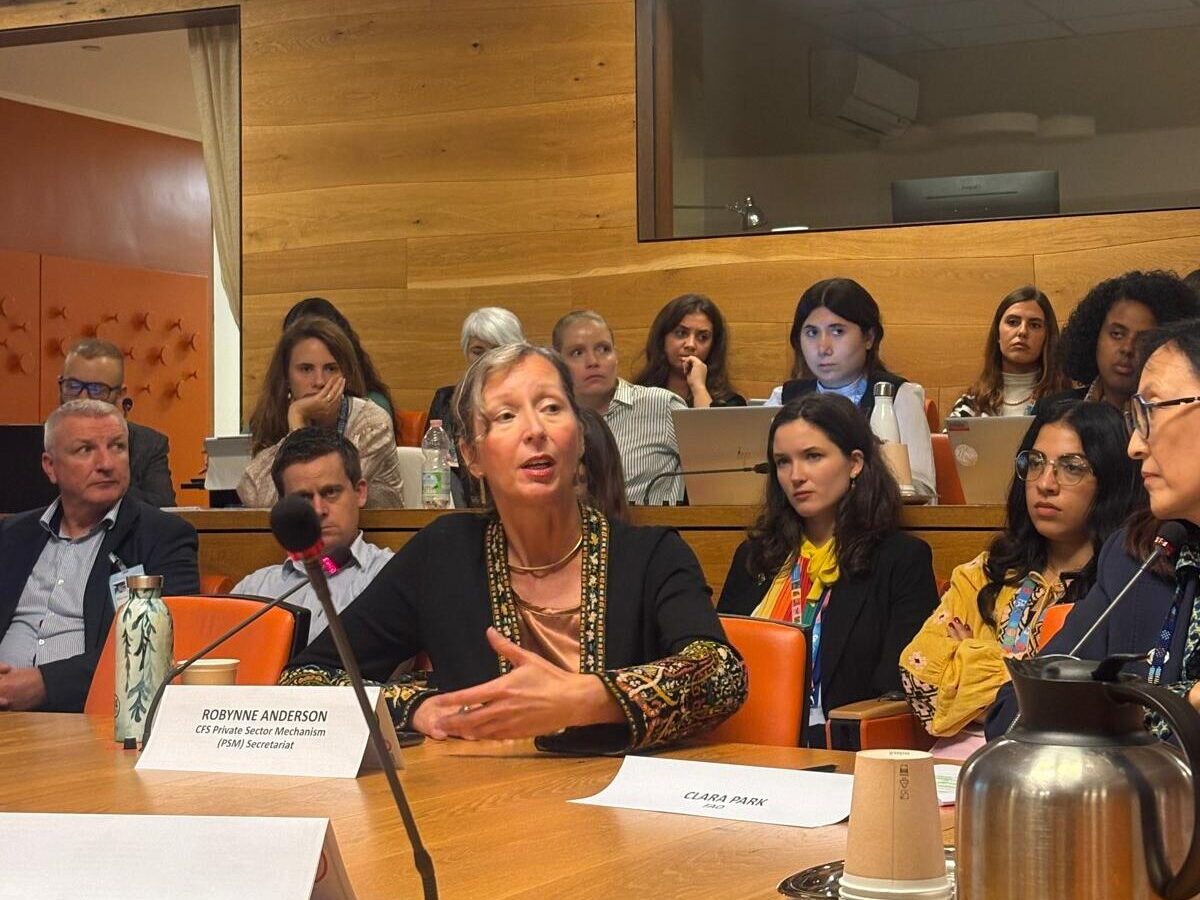
“Just in time” or “just in case” food systems? Managing trade-offs and building resilience from local to global
Thursday 24 October
Organizers: HLPE-FSN, GLOPAN, Sierra Leone, Brazil, Mexico, CSPIM, PSM.
This event built on the CFS MYPoW theme Building Resilience in Food Systems and focused on how to boost resilience from production to supply chain management, explored how to diversify sources of inputs, production, markets, and actors, including supporting the creation of small and medium-sized companies, cooperatives, consortiums and other groups to maintain diversity in food systems.
Reducing inequalities in food systems through entrepreneurship and enterprise
Friday 25 October
Organizers: OCP; GDP; Nuffield International; Morocco; Indonesia.
This event highlighted the need for a coordinated approach to address systemic inequalities in food systems, that are targeted towards the poorest, the most vulnerable and those most at risk of food insecurity and with participation of all countries, all stakeholders and all people. Discussions demonstrated that entrepreneurship and small and medium enterprise act as the greater driver of economic development in rural areas in ways that reduce inequalities and improves the food and nutrition security outcomes of rural people and the most vulnerable.
Reducing Inequality in Food Systems by expanding market access for inputs, outputs, and services
Friday 25 October
Organizers: Mosaic; GDP; Nuffield International, Pinion; GDP.
This event noted that one of the greatest drivers of inequalities in food systems is a lack of market access for agricultural inputs, services and production outputs. Insufficient access to fertilizers, necessary crop control products, insufficient infrastructure and poor extension services affect the most vulnerable populations the most. Speakers emphasized that developing public-private partnerships and policies to address these critical issues that impact the livelihoods of the world’s most marginalized and vulnerable communities is essential to reduce inequalities and advance the 2030 agenda.
-
CFS52 PSM Delegates Final Report
PSM had an active participation at CFS52 and with all activities leading up to the event. We sincerely thank all the delegates who participated in the 52nd plenary session of the CFS. PSM was represented by a delegation of 124 from 27 countries.
Download -
High Level Interactive Studio 2024 – Report
Bringing together 145 guests, this year’s High-Level Interactive Studio on Climate, Biodiversity, and the Right to Food & Decent Work provided a forum for discussions that can contribute to the discussions at the CFS and beyond.
Download -
CFS52 Plenary Speech – Promoting Food Security and Nutrition Across the Rural-Urban Continuum
Statement by Tintswalo Makhubele, Director of Imvuselelelo Bakery And Food Distribution – Farming cooperative in Seasonal vegetable, on behalf of the CFS Private Sector Mechanism
Download -
CFS52 Plenary Speech – Promoting Decent Work in Agriculture and Food Systems
Statement by Claire Fehrenbach, Engagement, Impact & Communication Director of Nutriset Groupe, on behalf of the CFS Private Sector Mechanism
Download -
CFS 52 Plenary Speech – Coordinated policy responses to the food crisis – the State of Food Security and Nutrition in the World 2024
Statement by Andrew (Andy) Macfarlane, Board of Directors, Fonterra and Global Dairy Platform on behalf of the CFS Private Sector Mechanism
Download -
CFS52 Plenary Speech – Addressing Multiple Dimensions of Inequalities
Statement by B Pratyusha Chennupati, 2023 Millennium Leadership Fellow, Atlantic Council
Download -
CFS 52 Plenary Speech – Global Thematic Event on Advancing the Uptake of the CFS Voluntary Guidelines on the Progressive Realization of the Right to Adequate Food in the Context of National Food Security
Statement by Yolène Pagès, Nuffield Scholar, France, on behalf of the CFS Private Sector Mechanism
Download -
CFS52 Plenary Speech – Forum on the uptake of the CFS Voluntary Guidelines on Gender Equality and Women and Girl’s Empowerment
Statement by Janice Giddens, Vice President, Sustainable Nutrition of USDEC, on behalf of the CFS Private Sector Mechanism
Download -
CFS 52 Plenary Speech – Coordinated policy responses to the food crisis – the State of Food Security and Nutrition in the World 2024
Statement by Nkhangweleni Sharon Mphaphuli, CEO/Managing Director, Mashero PTY (LTD), on behalf of the CFS Private Sector Mechanism
Download

